A Complete Guide About Eyelash Extension Irritation vs Allergy
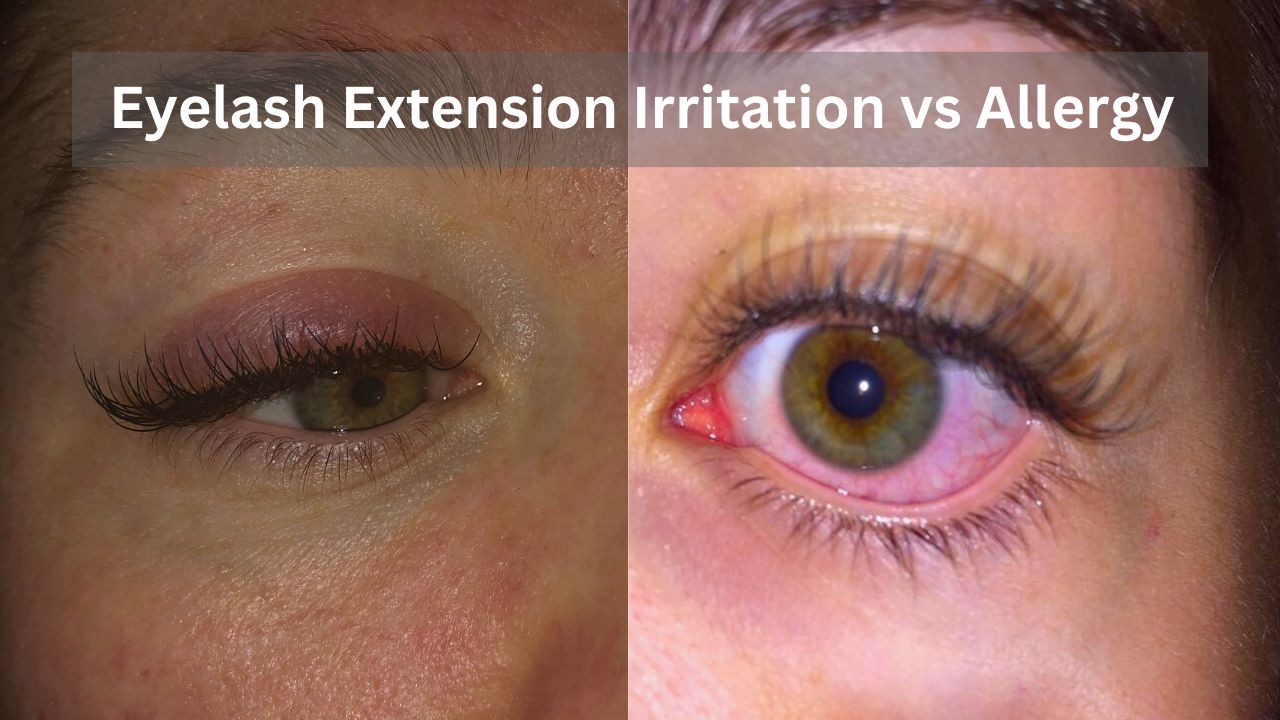
Imagine wanting long, stunning lashes but ending up with discomfort instead. Sometimes, when people get eyelash extensions, they might experience two different things: eyelash extension irritation vs allergy. These are like two different feelings that can happen when your eyes don’t agree with the extensions. Irritation is when your eyes feel a bit uncomfortable—maybe they itch or feel a little swollen. Allergy, on the other hand, is when your eyes react strongly and feel really uncomfortable, like being very itchy, red, or even swollen a lot. It’s important to know the difference so you can take care of your eyes properly.
In this article, we will discuss Eyelash Extension Irritation vs Allergy along with their symptoms, causes, and prevention in detail.
What is Eyelash Extension Irritation?
Eyelash extension irritation refers to a mild reaction that commonly occurs shortly after getting extensions. Symptoms may include slight redness, itching, or a mild burning sensation around the eyes. Irritation often arises due to improper application techniques, low-quality lash adhesives, or sensitivity to the adhesive used.
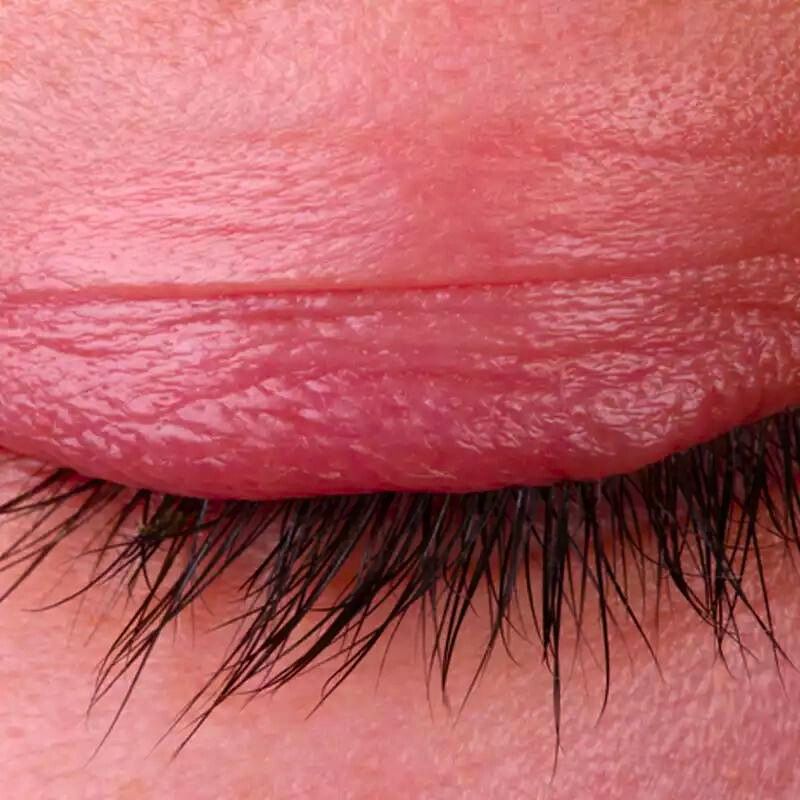
Symptoms of Eyelash Extension Irritation
Mild Redness Around the Eyes: Eyelash extension irritation often manifests as a subtle reddening of the skin surrounding the eyes. This redness tends to be localized and might appear specifically near the lash line or on the eyelids where the extensions are attached. It’s usually not extensive and can resemble a mild blush or irritation.
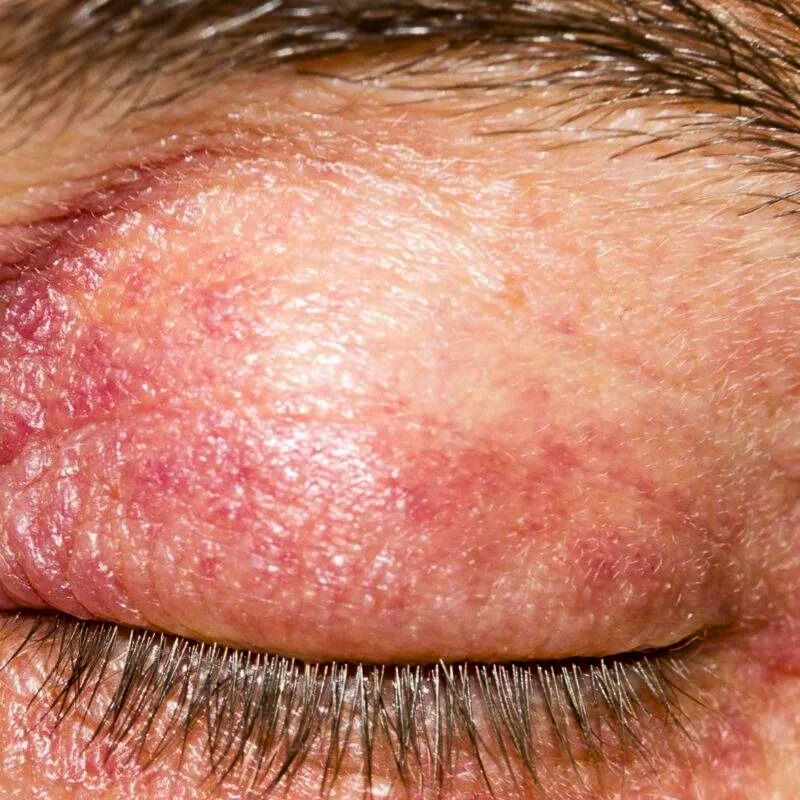
Itching or a Tingling Sensation: Individuals experiencing eyelash extension irritation commonly report a sensation of itching or tingling around the eyes. This sensation can range from a mild, occasional itch to a persistent, bothersome feeling. It typically occurs in the area where the extensions make contact with the skin and might prompt the urge to rub or touch the eyes.
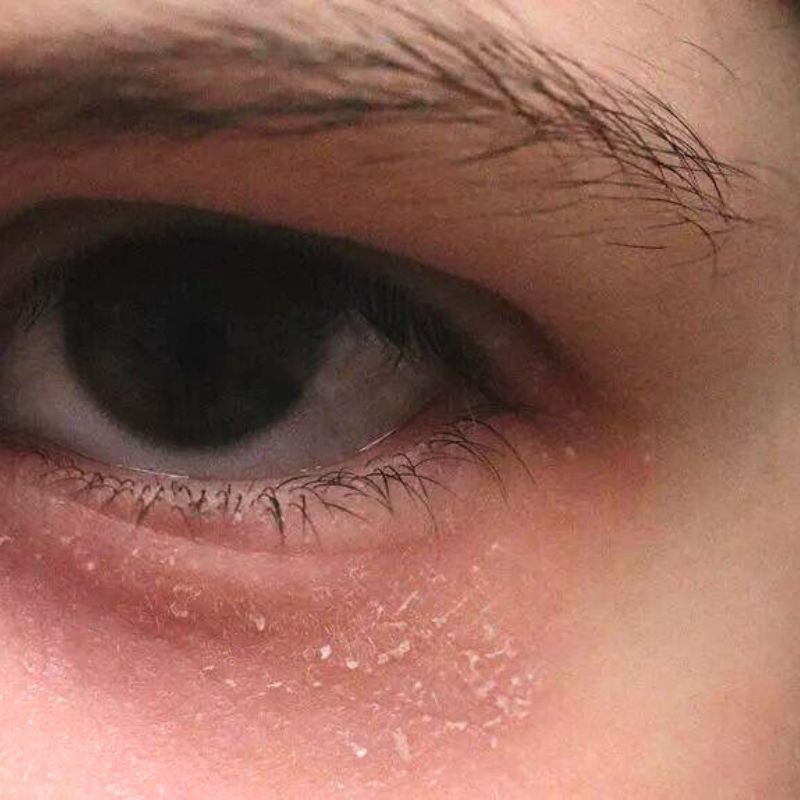
Slight Swelling of the Eyelids: Some individuals might notice a slight puffiness or swelling of the eyelids following eyelash extension application. This swelling can be subtle and usually occurs near the lash line or on the upper or lower eyelids. It’s often a mild reaction and may not cause significant discomfort or impairment of vision.
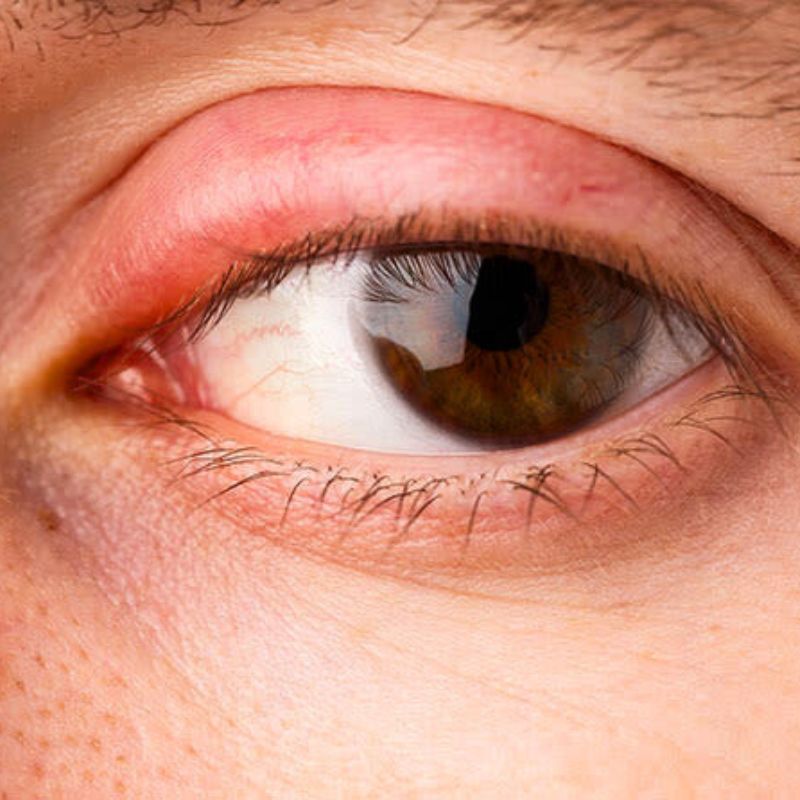
Discomfort without Severe Pain: Eyelash extension irritation typically involves discomfort that is noticeable but not severe enough to cause significant pain. Individuals might feel a sense of unease, irritation, or an uncomfortable sensation around the eyes. However, it generally does not escalate to intense or debilitating pain.
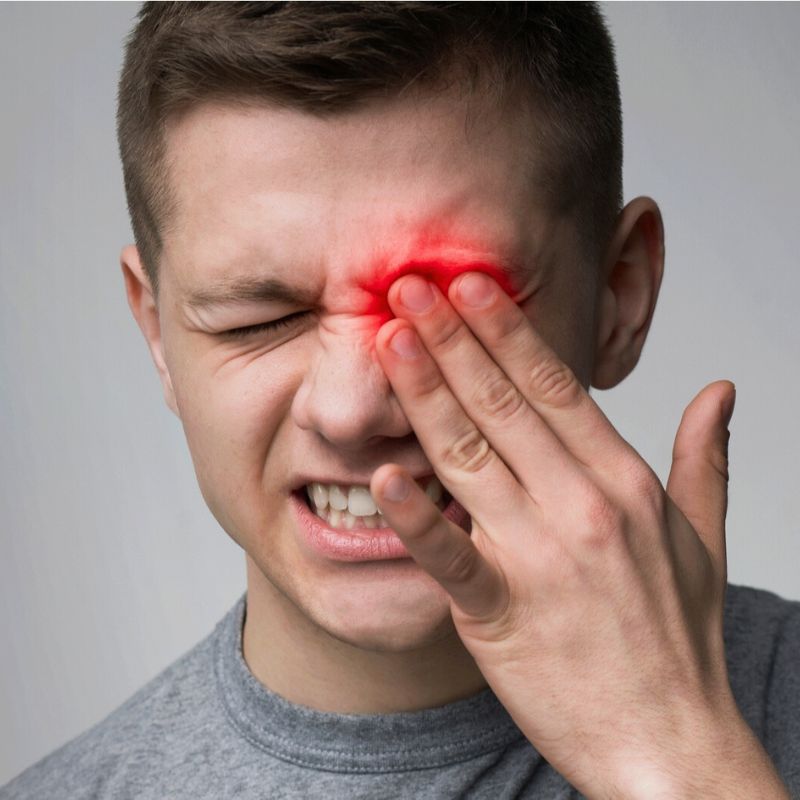
Causes of Eyelash Extension Irritation
Improper Application: When extensions are applied too close to the lash line or multiple lashes are adhered together, it can lead to irritation.
Low-Quality Products: Adhesives containing harsh chemicals or allergens can trigger irritation in sensitive individuals.
Sensitivity: Some people may have a natural sensitivity to the adhesive or other materials used in the extension process.
Allergic Reactions to Extension Fibers: Some individuals may develop sensitivity or irritation due to the synthetic fibers or materials used in the eyelash extensions themselves.
Managing Eyelash Extension Irritation
Consult a Professional: Seek advice from a qualified lash technician or healthcare provider if irritation persists.
Take a Break: Give your lashes a break from extensions to allow the skin to heal.
Use Soothing Remedies: Applying a cold compress or using gentle, non-irritating eye creams may provide relief.
How to prevent yourself from Eyelash Extension Irritation?
Choose a Skilled Technician: Select a certified and experienced lash technician for proper application techniques.
Patch Test: Request a patch test before the full application to check for adverse reactions.
Research Products: Ensure products used are high-quality and hypoallergenic, avoiding harsh adhesives or extensions.
Thorough Cleansing: Cleanse lashes and the eye area before the appointment to remove oils and debris.
Communicate Sensitivities: Inform your technician about any known sensitivities or allergies to specific ingredients.
Proper Application Distance: Ensure extensions are not placed too close to the lash line to minimize skin contact.
Avoid Touching or Rubbing: Refrain from touching or rubbing eyes excessively after application.
Follow Aftercare Instructions: Adhere to aftercare guidelines provided by your technician for proper maintenance.
What is Eyelash Extension Allergy?
Eyelash extension allergy refers to a more severe and persistent reaction that some individuals may experience following the application of eyelash extensions. Unlike irritation, which is often mild and temporary, an allergy is an immune system response to specific substances present in the extensions, such as adhesives or synthetic fibers.
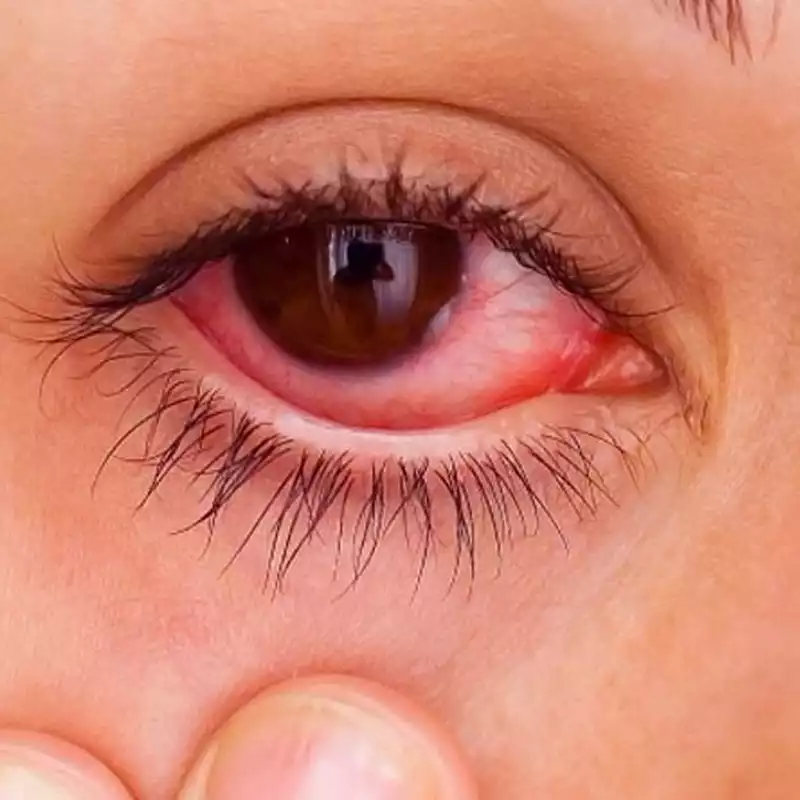
Symptoms of Eyelash Extension Allergy
Intense Redness: A significant and noticeable redness around the eyes, extending beyond the area of the lash line.
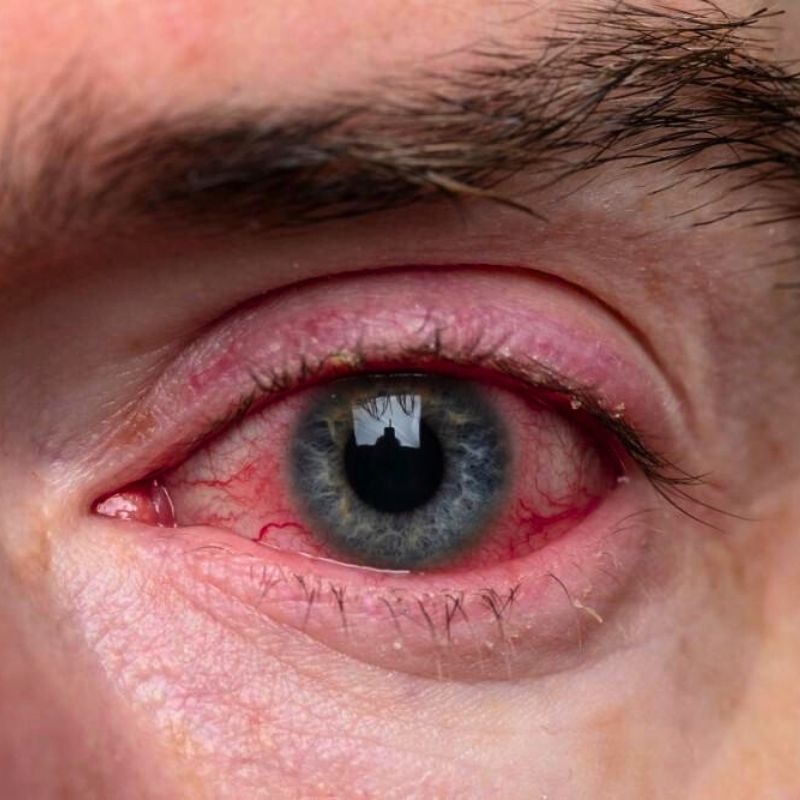
Severe Itching or Burning Sensation: Intense and persistent itching or burning sensations that can be uncomfortable or even painful.
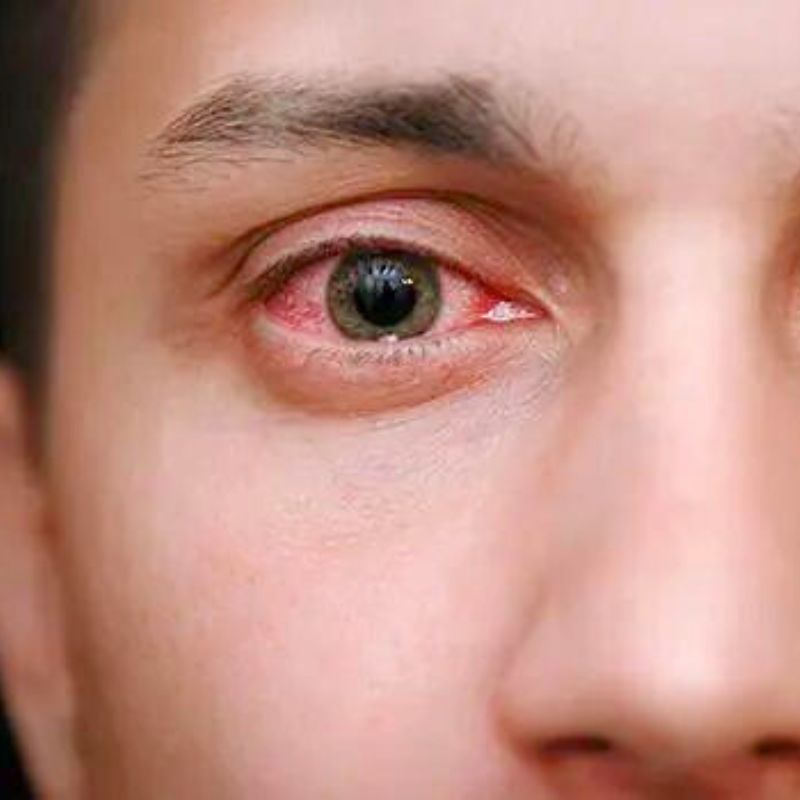
Swelling and Inflammation: Pronounced swelling and inflammation of the eyelids or the surrounding eye area.
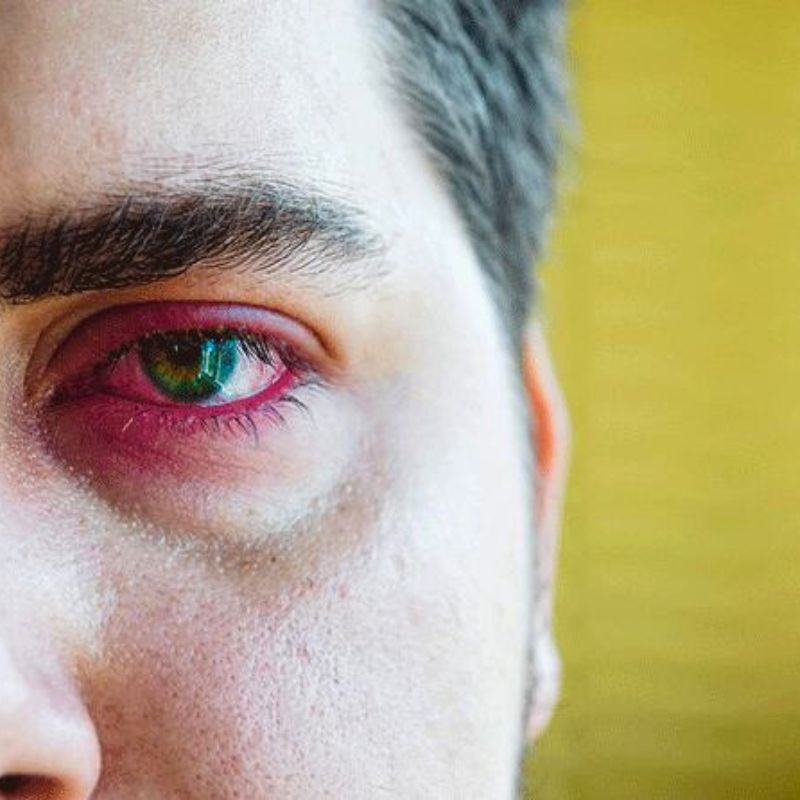
Watery or Irritated Eyes: Excessive tearing, irritation, or discomfort in the eyes, potentially leading to blurred vision or increased sensitivity to light.
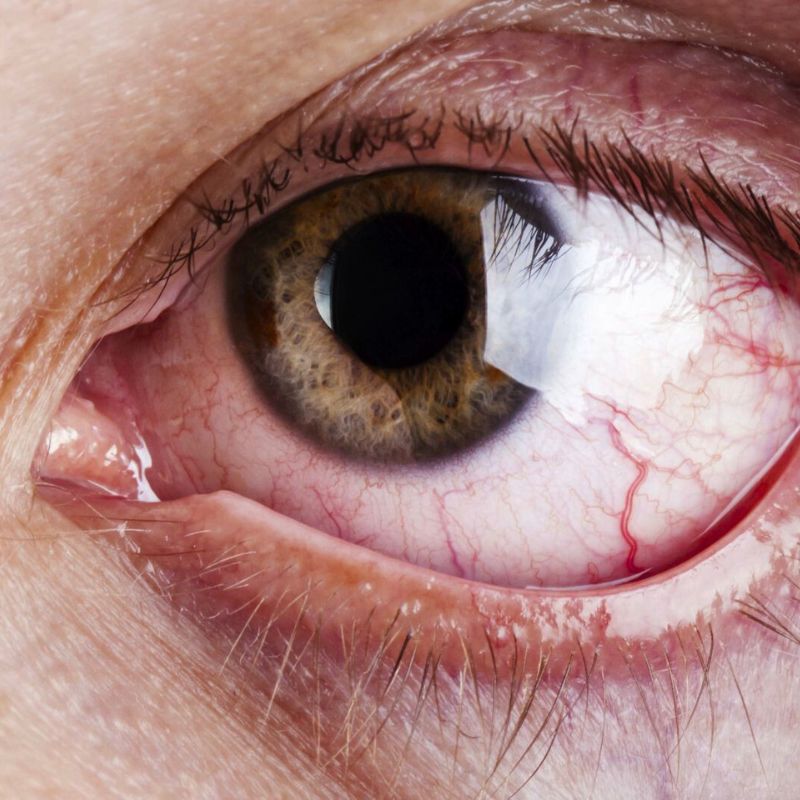
Formation of Blisters or Hives: In severe cases, individuals might develop blisters or hives on or around the eyelids due to an allergic reaction.
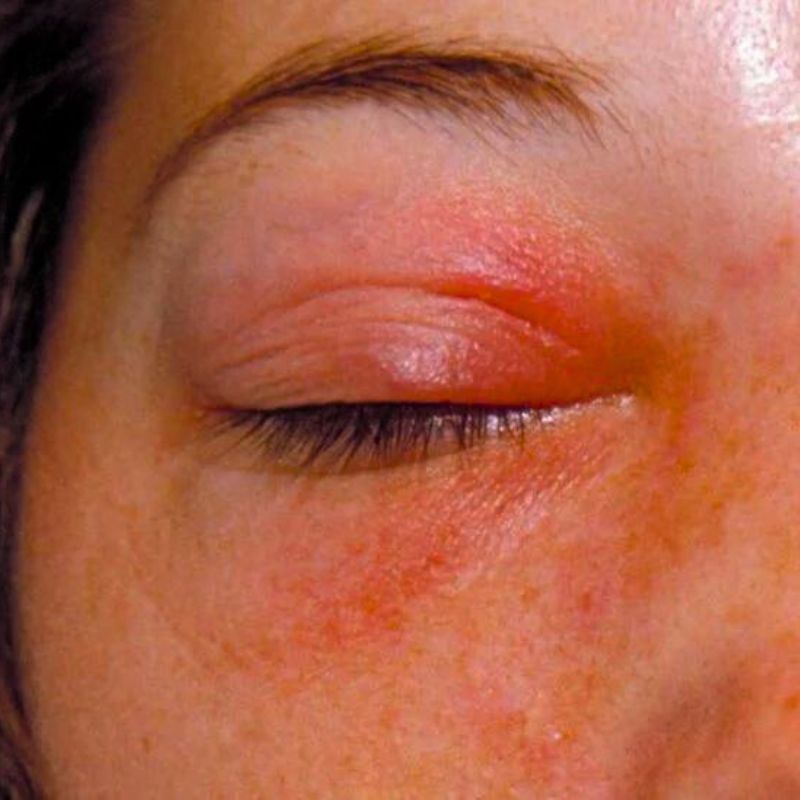
Causes of Eyelash Extension Allergy
Lash Adhesive Ingredients: Allergies often stem from compounds like formaldehyde or cyanoacrylate found in some adhesives. Choosing the right eyelash glue or eyelash extension glue is crucial for secure and lasting lash adhesion. Extension glue allergy can also cause discomfort and irritation, necessitating attention to the ingredients in lash extension adhesives.
Lash extension allergies may occur due to sensitivities to components present in lash glues, requiring careful consideration before application. When facing issues, proper lash extension removal techniques are essential to avoid further irritation or damage to natural lashes.
Fiber Materials: Allergic reactions might also occur due to the synthetic materials used in lash extensions.
Sensitivity to Coating Agents: Some extensions may have coatings or treatments applied to enhance durability or appearance. Sensitivity to these coatings could lead to allergic responses.
Residual Chemicals: Improper removal of residual chemicals or insufficient rinsing during the application process can expose the eyes to allergens, potentially causing allergic reactions.
Managing Eyelash Extension Allergy
Consult a Healthcare Professional: Seek medical advice immediately if experiencing severe symptoms.
Remove Extensions: Removing the extensions is crucial to halt the allergic reaction.
Medication and Treatment: A healthcare provider might recommend antihistamines or topical steroids to alleviate symptoms.
How to prevent yourself from Eyelash Extension Allergy?
Patch Test: Conduct a patch test before the full application to check for adverse reactions.
Use Hypoallergenic Products: Choose adhesives and extensions labeled as hypoallergenic or suitable for sensitive skin.
Communicate Allergies: Inform your technician about any known allergies or sensitivities to specific ingredients.
Select Quality Materials: Opt for lash extensions made from hypoallergenic materials like silk or mink.
Avoid Harsh Chemicals: Check ingredient lists and avoid adhesives containing known allergens.
Thorough Cleansing: Cleanse your lashes and eye area thoroughly before the appointment.
Monitor Reactions: Be vigilant for any signs of discomfort or unusual sensations during or after the procedure.
Regular Maintenance: Schedule regular touch-ups and replace worn or damaged extensions.
Frequently Asked Questions (FAQs) about eyelash extension irritation vs allergy
What is the difference between eyelash extension irritation vS allergy?
Eyelash extension irritation is a mild reaction that involves symptoms like redness, itching, or mild swelling and is usually temporary. Allergy, on the other hand, is a more severe and persistent immune system response, causing intense redness, severe itching, swelling, or even blistering.
How can I distinguish between irritation and allergy?
Irritation tends to be milder and typically involves temporary discomfort, while an allergy results in more pronounced and lasting symptoms. Allergy symptoms might escalate over time and may not resolve without prompt intervention or removal of extensions.
What causes eyelash extension irritation?
Eyelash extension irritation can result from improper application techniques, low-quality products containing harsh chemicals, or individual sensitivities to adhesives or extension materials.
Can eyelash extension irritation turn into an allergy?
While irritation is usually temporary and mild, continuous exposure to allergens or irritants may exacerbate symptoms and potentially trigger an allergic response in some individuals.
How long does eyelash extension irritation last?
Eyelash extension irritation often subsides within a few hours to a couple of days after the application. If it persists or worsens, seeking professional guidance is recommended.
Conclusion
Understanding the difference between eyelash extension irritation and allergy is vital for proper management and prevention. While irritation is usually mild and temporary, allergies can lead to more severe and persistent symptoms. If you experience any discomfort or adverse reactions after getting eyelash extensions, it’s crucial to seek guidance from a professional to ensure the health and safety of your eyes and skin.
